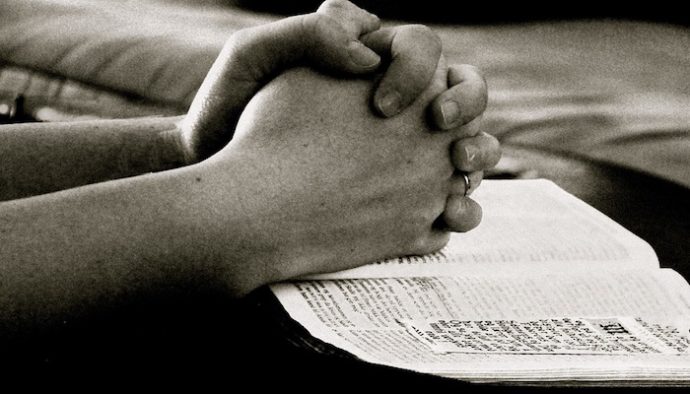I’m a nervous pray-er.
I don’t mean I’m nervous praying with other people; I mean that many times I’m nervous when I pray because I don’t know whether I’m praying for the right thing. It is as if sometimes my theology gets in the way of my prayers.
Let me explain.
I know, for example, that God is sovereign. As such, all the moments of our days are ordered, and even “a king’s heart is like channeled water in the Lord’s hand:
He directs it wherever he chooses” (Prov. 21:1). I know too that God always acts in accordance with His will, and that His will is good and perfect even though we, as humans, might not understand how or why He makes the decisions He has made. His ways are not our ways, neither are his thoughts our thoughts (Is. 55:8-9).
These are things I know, and so these are things I bring with me to the closet of prayer. As a result, I find that I have the tendency to qualify my prayers. Maybe you know the feeling, too.
Let’s say that you have a big meeting coming up at work. It’s the kind of meeting where multiple things are coming together, maybe the summation of a big project or deal you’ve been working on. And you are nervous and anxious about this, so you pray:
Lord, for this meeting today, I pray that my proposal will be met favorably. At least, that is, if it’s your will. I hope it’s your will for it to go well. But if it’s not, then I pray that I would be able to handle it rightly.
That seems to me to be a very theologically informed prayer. Nothing wrong with that, except…
Except even writing that prayer, there’s something in me that tells me that this is not the kind of bold approach to the throne of grace that Jesus died for. This is not the intimate kind of communication that Jesus told me to cultivate by starting my prayer with, “Our Father…”
It’s respectful, sure – but it sounds a bit like one who is not sure of the character of the person he’s talking to.
So what is the alternative? Perhaps another way to pray is through exercising faith before, during, and after we pray.
Exercising faith before we pray means that prayer is not a last resort; it is a first action. We take the command of Paul seriously that in all circumstances, we should pray (Phil. 4:6). It should be the first thought in our minds because we believe that God is welcoming to our prayers and wants to hear from His children.
Exercising faith during our prayers means that we simply make our requests make known to God. We don’t have to qualify them. We just ask our Father for what, in our limited scope of vision, we believe is the best thing for us and for others. No qualifications; just communication.
Exercising faith after our prayers means that we accept the answer God gives, regardless of whether it lines up with our preference or not. It means that we trust that whether or not the meeting goes well, whether or not the healing comes immediately, whether or not the person soon believes the gospel – that God is right in His decisions.
When we exercise faith before, during and after our prayers, it means we don’t need to qualify them, because our faith is not in our ability to pray the right thing. Instead, our faith is in a God who hears, answers, and is right in how He does so.
Subscribe to MichaelKelley.co
Never miss a new post. Subscribe to receive these posts in your inbox and to receive information about new discipleship resources.






3 Comments